What does your work involve? Give us the typical outline of a day?
I work freelance on a number of different projects, so every day is different! Sometimes I’m calculating carbon footprints for charities, sometimes I’m writing environmental books and articles, sometimes I’m performing poetry or helping to run Cyc du Soleil, a solar and cycle powered festival stage. The performance activism I do with BP or not BP? has to fit in around all that.
What’s great about performing with BP or not BP?
BP or not BP? is an activist theatre troupe. We create performances without permission, in cultural spaces (theatres, art galleries, museums) that are sponsored by oil companies. We’re using art and culture to try to kick out the fossil fuel industry, to reclaim these cultural spaces where oil companies are trying to push this false, positive picture of themselves. To go into those places and creatively present the truths, voices and stories that the oil companies are trying to hide – it feels like a really effective way of using art to make a difference.
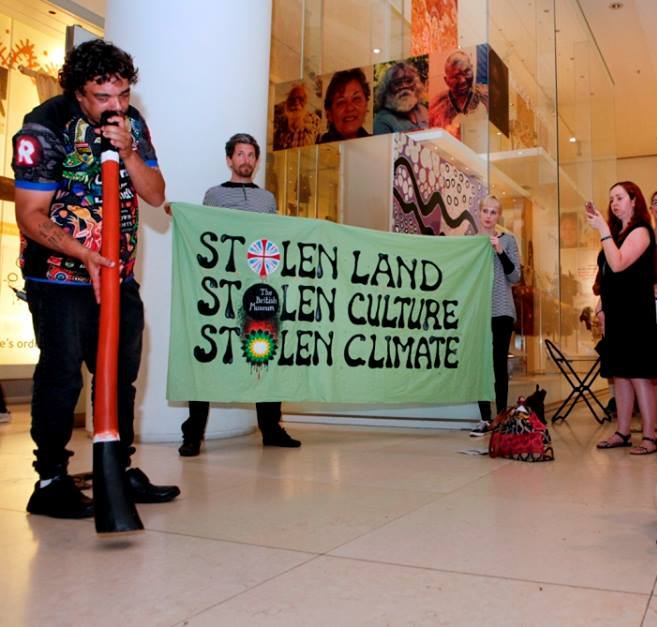 BP or not BP? perform with Indigenous Australian campaigner Rodney Kelly, who is calling for the return of his ancestor’s stolen shield from the British Museum. Photo by Anna Branthwaite.
BP or not BP? perform with Indigenous Australian campaigner Rodney Kelly, who is calling for the return of his ancestor’s stolen shield from the British Museum. Photo by Anna Branthwaite.
What are the bits you find challenging?
Because we’re popping up in theatres and museums without permission, that adds a whole extra level of complication to the organising – we have to have contingency plans and be able to think on our feet! But when we succeed in getting 70 performers to a 5-hour rebel festival or smuggling a giant sea monster past British Museum security, then it’s all worth it.
Check out this film of BP or not BP? holding a festival without permission at the Royal Shakespeare Company:
What’s your background in and how did you find yourself as part of BP or not BP?
I studied environmental science and policy, got involved in climate justice campaigning and then started writing and performing poetry. So when BP began sponsoring Shakespeare plays at the Royal Shakespeare Company (RSC) in 2012, it pushed all my buttons. I was horrified that an oil company was using the work of one of our greatest poets and playwrights to make itself look good and distract the world from its pollution and political lobbying. I got together with a few friends who were equally outraged by this, and we came up with an idea: we’d buy tickets for a BP-sponsored play, then five minutes before the start a couple of us would jump on stage and perform a short soliloquy in Shakespearean style, all about BP’s misdeeds. Our two performers pulled it off, there was a fantastic response from the audience – and BP or not BP? was born! We went on to invade the stage before six different BP-sponsored plays. Back then we were called the Reclaim Shakespeare Company, but we later changed the name when we broadened out to doing performances in other oil-sponsored spaces, not just the RSC.
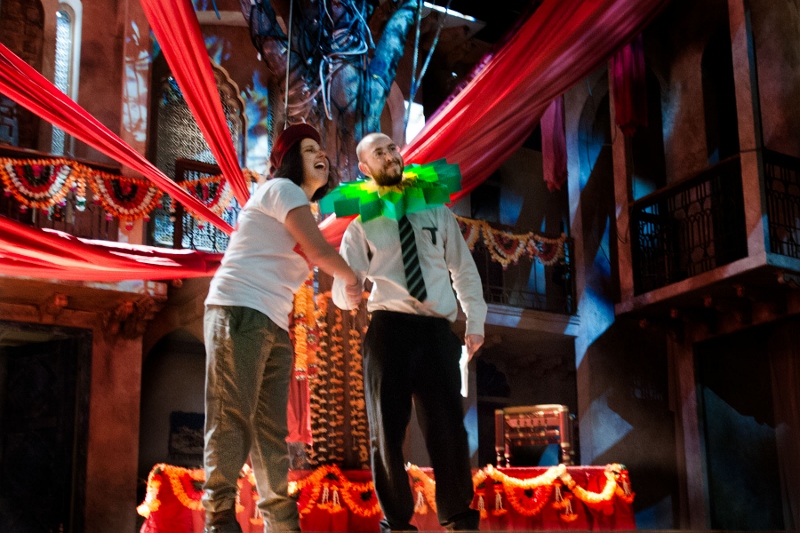 Two performers from BP or not BP? invade the stage during the interval of “Much Ado About Nothing”, sponsored by BP, in 2012. Photo by David Hoffman
Two performers from BP or not BP? invade the stage during the interval of “Much Ado About Nothing”, sponsored by BP, in 2012. Photo by David Hoffman
Can you describe your biggest challenge so far in your career? How did you overcome it?
The thing I find most challenging is the urgency, immediacy and scale of climate change. Millions of people around the world are losing their lives, homes and livelihoods right now, and governments have utterly failed to act on the scale required – thanks in large part to the lobbying power of the fossil fuel industry. It’s hard not to feel overwhelmed by the state of the world, by what so many people (especially marginalised people and people of colour) are already facing, and what’s ahead of us. Finding meaningful ways to take action together with other people is definitely part of the solution, both in terms of creating change and in dealing with it on a personal, emotional level.
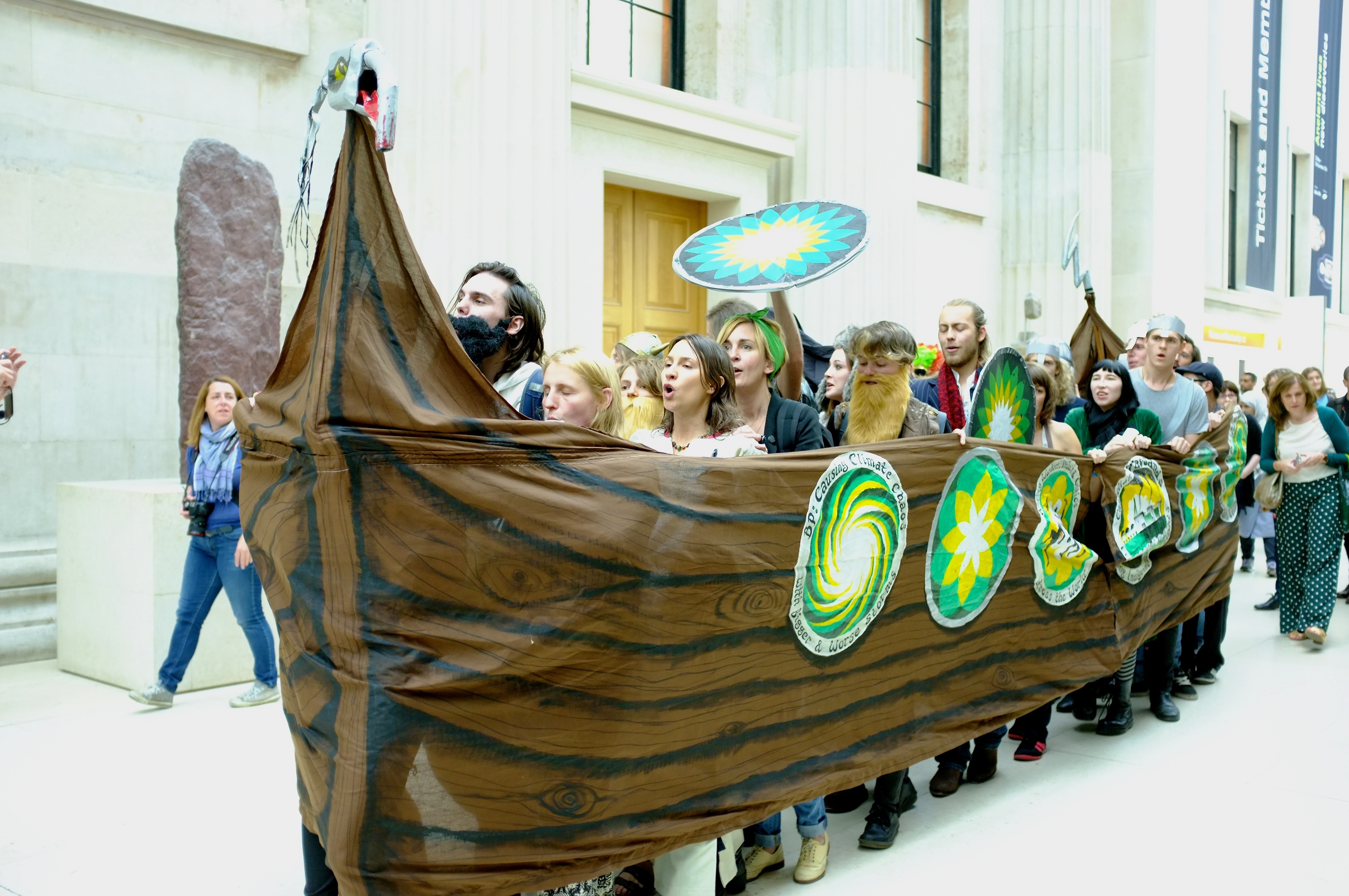 The Viking longship that was smuggled past British Museum security, as part of the 2014 ‘flash-horde’. Photo by Hugh Warwick
The Viking longship that was smuggled past British Museum security, as part of the 2014 ‘flash-horde’. Photo by Hugh Warwick
Can you share with us some of BP or not BP’s highlights to date?
In 2014, BP sponsored a Vikings exhibition at the British Museum. So, we smuggled a Viking longship into the museum to give BP a Viking funeral. This was one of our public flashmob performances (in this case a ‘flash-horde’) involving hundreds of people. More recently we held a ‘splashmob’ (with merfolk, pirates and other underwater creatures) to challenge BP sponsorship of a ‘Sunken Cities’ exhibition, and a ‘freezemob’ (Christmas carols, Dickensian characters and a giant ‘ice crack’ in the museum floor) when BP sponsored an exhibition of objects taken from the Russian permafrost. These large-scale performances always get lots of attention and interest from museum visitors and online.
Check out this film of two hundred ocean creatures and a giant sea monster take over the British Museum in a 2016 ‘splashmob’:
Some of my other favourites are: our performance at the Edinburgh Festival in 2015, where one of the major stars of the festival supported us and we succeeded in kicking BP out; the rebel musical we created at the National Gallery, that challenged Shell sponsorship and also supported the gallery workers who were on strike against privatisation; and our ‘rebel exhibition’ in the British Museum,featuring objects donated by communities around the world affected by BP, including a sample of oil from the Deepwater Horizon disaster and a tear gas canister from the Egyptian revolution.
Check out this film of A History of BP in Ten Objects, a ‘disobedient exhibition’ by BP or not BP?:
I’m also proud of the work the group has done to expose how little money the oil industry actually gives to the arts. For example, BP’s high-profile sponsorship deals with the British Museum, Royal Shakespeare Company and Royal Opera House provide less than 1% of those institutions’ annual income. Meanwhile, the smaller theatres and galleries around the country that are struggling in the funding cuts rarely get offers from oil corporations – these polluting companies are mainly interested in the big high-profile arts institutions that can boost their PR and networking opportunities.
Are there any active projects you want people to get involved with?
BP currently sponsors £5 tickets for 16 to 25-year-olds at the Royal Shakespeare Company. This means that if you’re a young person who wants to see an affordable Shakespeare play at the RSC, you have to help promote a company that’s destroying your future - even though the RSC makes millions of pounds in surplus every year and could definitely afford to offer these cheap tickets without BP. In June, we held a rebel festival at the RSC to challenge this, and we’re keen to keep the pressure on. If people in the 16-25 age bracket wanted to speak out in some way, we love to help them to do that – anyone who’s interested should drop us a line on [email protected].
In the meantime, anyone aged 16-25 who wants to see an RSC play without supporting BP should check out the alternative Fossil Free £5 Tickets offered by Culture Unstained.
How useful are arts as a protest tool? Why, in your opinion is it more effective than other forms of protest? Do you think people respond differently to the use of arts for protest?
Different forms of protest are right for different circumstances. Performance isn’t always the best tactic; sometimes a blockade, a sit-in or an occupation is the most effective thing to do. But we’ve found that performance protest can have real power, especially in cultural spaces where the institutions would look awful or ridiculous if they tried to stop a performance in mid-flow. Performance allows us to connect people with the issues in a more emotional and engaging way, by telling stories rather than simply presenting facts. Things that are different and creative can be more successful at catching the attention of the public and getting more traction on social media. Performance can also be uplifting, empowering – and, yes, fun – in a way that holding a placard and chanting doesn’t always manage to achieve. Plus, it’s very hard to drag someone out of a museum when they’re halfway through singing a song…
Check out this film of a rebel musical against Shell sponsorship of the National Gallery in 2014, in solidarity with striking gallery workers:
What comes first, the art or the message?
They tend to develop in parallel and inform each other. We have artistic ideas and strategic ideas, they all get mixed together in the creative process and we end up with something that hopefully achieves both.
What’s the importance of doing things without permission? Do you think your actions would be as effective if you were to gain permission first?
A major point of our performances is to take space back from the oil companies. They are using their money to try to control how the public see them in these cultural spaces; we are using our bodies, our lungs and our imaginations to take that control away from them and present more truthful stories and less-heard voices instead. If any oil-sponsored museum, gallery or theatre gave us permission to perform then we would risk being co-opted into a PR strategy: ‘Look how open-minded we are, we’re giving anti-oil voices a space even though BP sponsors us!’. That would completely undermine what we’re trying to do – there is never any justification for helping to promote an oil company at a time of disastrous climate change.
Check out this film of Sherlock Holmes and the Adventure of the Oily Museum. A rebel performance in the British Museum by BP or not BP?:
How do you ensure that the people who are most affected by the issues you’re protesting about have a voice in your projects?
We’ve been privileged to work with amazing frontline activists from around the world, from communities directly affected by oil company pollution, corruption, and collusion with repressive regimes. We’ve also teamed up with campaigners calling for the return of stolen objects from the British Museum – these issues go hand-in-hand with oil sponsorship as part of the colonial practices and mindsets that are still to be found at many museums. When we work in these solidarity partnerships, our goal is to provide a platform for their voices, stories and messages in our performances, and to follow their lead on what the key issues might be. This can be challenging work on all sides – there are lots of ways to get it wrong – but done right, it should lead to more powerful performances that are a better reflection of the real issues at stake. We’re really grateful to the frontline folks who’ve been willing to work with us and been so patient with our mistakes along the way.
Check out this film of the Dead rebel performance in the British Museum by BP or not BP? and London Mexico Solidarity:
How important is it for young people to pave the way for this kind of activism?
As we get older, it’s easy to get a bit set in our ways and start doing things because ‘that’s the way we’ve always done them’. In my experience, young people are excellent at shaking things up and providing fresh perspectives and new creative ideas. We’re always very happy to have more young people involved in our performances!
Do you have any advice for other young people interested in doing your kind of work?
Being a full-time artist or performer is amazing if you can achieve it, but financially very tough, especially with so many government cuts to arts funding. Getting involved in artistic activism can be a great creative outlet if you’re slogging away in less exciting day jobs while building up your performance career. But most importantly, don’t do it alone – find like-minded people and see what you can create together.
Where can people find out more about you?
You can see films of all our past performances on our website, you can join our mailing list, and follow us on Facebook, Twitter and Instagram. Maybe we’ll see you at one of our performances soon…?
Check out this interview with BP or Not BP?'s young person, Nicki Carter.
From Voice to Action
Never before have so many issues been championed at once. The environment; equal rights for ethnic minorities and LGBTQ+; an end to class discrimination and access to opportunities for the disabled. We at Voice want to shine a light on these movements, and specifically how art is integrated or indeed integral to these groups. Check out the From Voice to Action series.


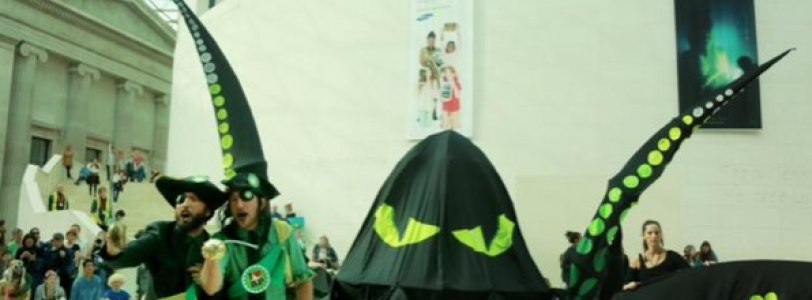
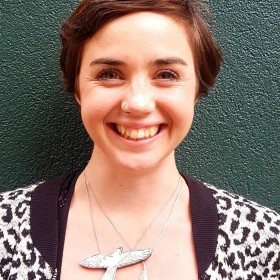


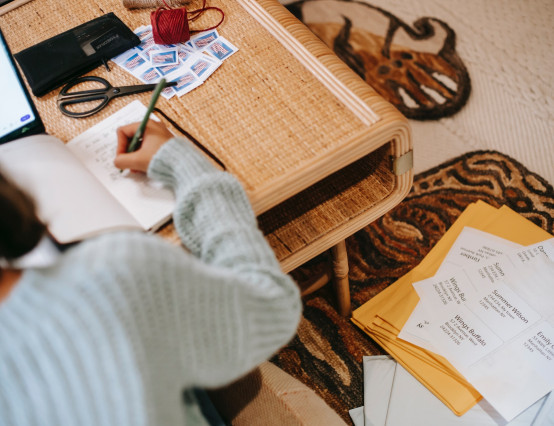
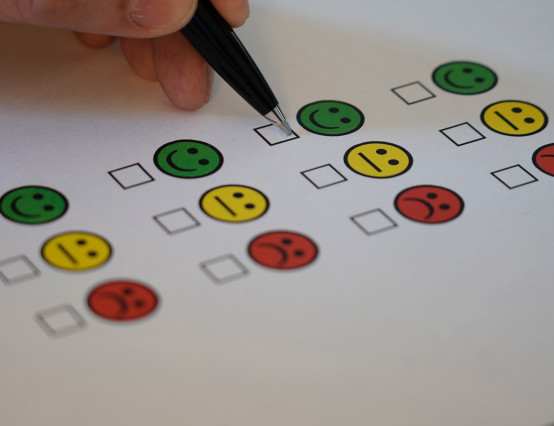


0 Comments